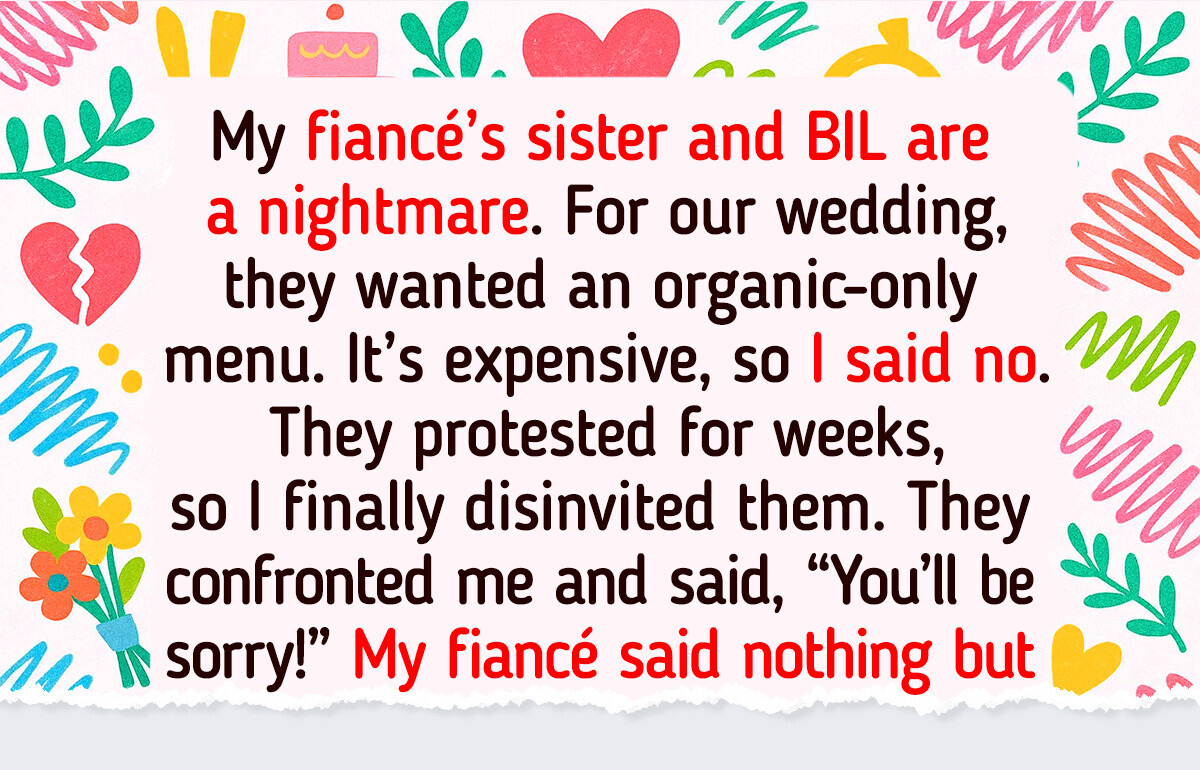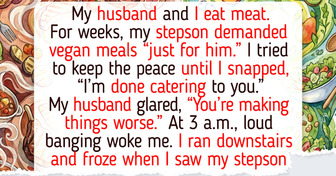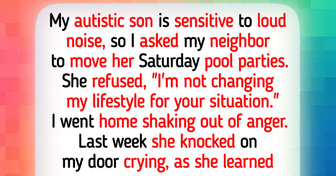I Refuse to Keep Paying the Price for My Best Friend’s Choices


Weddings are meant to be joyous occasions, but sometimes family dynamics can turn them into a nightmare. Melanie’s story below highlights a situation where her fiancé’s family demanded a specific menu for the wedding, causing tension and leading her to disinvite them. Handling such situations requires emotional intelligence and confidence, which we’ll explore in this post.
My fiancé’s sister, Vanessa, and her husband, Greg, have always been a source of tension. So when wedding planning started, I knew there’d be drama.
The tipping point came when they demanded an organic-only menu. It was way out of our budget, so I said no. They insisted, sending me links to pricey options, and after weeks of protests, I had enough. I disinvited them.
Vanessa wasn’t having it. She came to my door, furious, and told me I’d regret it. But my fiancé, who had stayed quiet through all this, finally spoke up.
“I’m putting her first,” he said, making it clear he wasn’t going to let anyone ruin our day. Vanessa called him a traitor, but he stood his ground.
As they left, I felt both relieved and anxious. The family drama had just begun, but I knew one thing for sure—he had my back.
Melanie, in situations like these, it’s essential to set healthy boundaries with family, even when it feels uncomfortable. You did exactly that by disinviting your fiancé’s family when their demands became unreasonable. This is a form of “assertive communication,” which involves expressing your needs and desires clearly, without letting others push you into a corner. By standing firm in your decision, you showed that prioritizing your happiness and your relationship was crucial.
A wedding is not just a union between two people, but between families as well. Your fiancé showed emotional maturity by supporting your decision, and this is what psychologists call “relationship cohesion.” When facing external stress, such as family conflicts, it’s crucial for both partners to present a united front. By doing so, you and your fiancé reinforce each other’s confidence, mutual support, and the strength of your bond.
It’s normal for family members to feel hurt or upset when their expectations aren’t met, but those reactions are about their own emotional needs—not your responsibility to manage. Vanessa’s angry outburst, for example, was likely driven by feelings of rejection or not being considered in the wedding plans. Recognizing that these reactions stem from their emotions can help you not take them personally, Melanie.
Dealing with family conflict doesn’t mean avoiding it—it’s about addressing it constructively. If you and your fiancé wanted to keep the peace with his family, a compromise could have been considered—but only after your own needs were respected. One effective strategy is “active listening,” where both parties feel heard without judgment. You could sit down with your fiancé, Melanie, and discuss whether there’s room for understanding or a middle ground, especially if this family conflict continues.
While you’re here, another story about complicated family dynamics is waiting for you.











